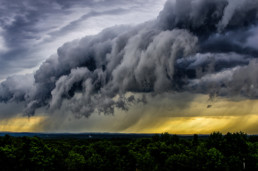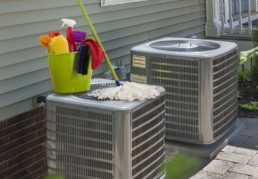Summer AC Bills Are Almost Here – Learn How To Lower Your Costs
During the summer, operating without air conditioning can be a tough thing. With temperatures rising above normal, all you need is some cool air to make things a bit bearable.
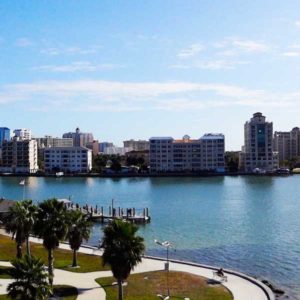
Downtown Sarasota and Venice FL Can Get Hot and Humid Even In May.
What this means is that your energy costs will definitely shoot up. However, the good news is that there are ways to ensure that you cool your surroundings and at a lower cost. Preparing for the hot season in Venice can help you save more in terms of air conditioning. Here are some tips and tricks on how to do exactly that.
Create Thermal Boundaries
One of the best ways of saving money on air conditioning is by sealing all holes and spewing vents in your home. The trick is to seal any places where air can leak out. The best area to start with is along window seals because these are places where drafts are likely. This extra insulation tactic can be achieved using either caulking or foam.
In case your air conditioning is window-unit, you should ensure that it fits firmly so that there is no air escaping around it. According to experts, creating such thermal boundaries around the home can help you save approximately 20 percent off your air conditioning costs in the summer.
Program your Thermostat
What most homeowners do not know is that they can tweak their thermostats a bit and make their air conditioner do less work. The idea here is to turn up the heat in your home a few degrees so that the air gets warmer. This way, your air conditioner will not be overworked.
The problem arises where you have to turn up your room temperature manually and at specific times. Because this can be hectic, you can consider investing in a programmable thermostat. This kind of thermostat can be programmed at specific times and regulate the temperatures even when you are not around.
Keep the Sun Out!
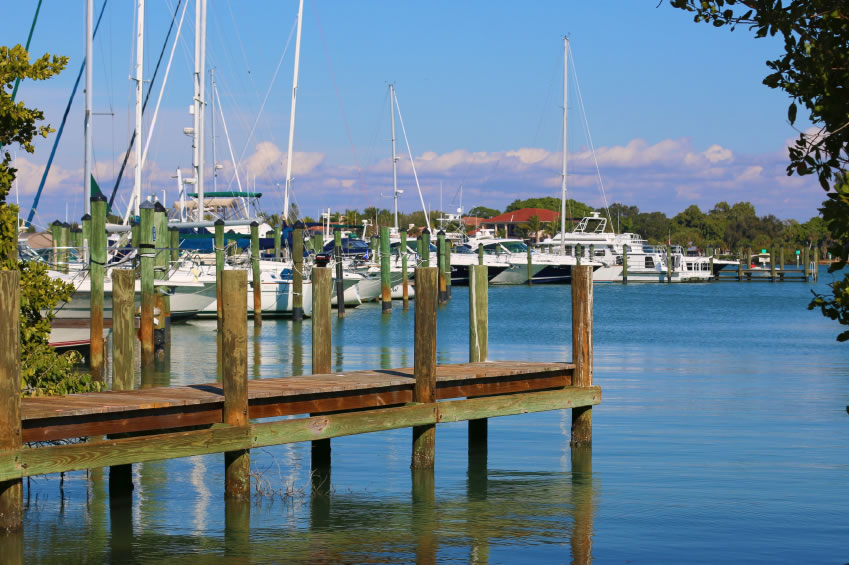 Another way of ensuring that your air conditioning costs go down during the summer is by keeping the sun out. Any shade is welcome especially since any sunlight in the house will make it difficult for you to keep air cooler. The best way of keeping the sun out is by investing in curtains, which will subsequently create a greenhouse effect and help you maintain cooler temperatures in the house.
Another way of ensuring that your air conditioning costs go down during the summer is by keeping the sun out. Any shade is welcome especially since any sunlight in the house will make it difficult for you to keep air cooler. The best way of keeping the sun out is by investing in curtains, which will subsequently create a greenhouse effect and help you maintain cooler temperatures in the house.
If you have a long-term plan, you could consider planting trees and plants with big leaves to create a shade effect in your rooms.
Keep the Filters Clean
If you have never given this a thought, try it and see how effectively it works. When you clean your air conditioner, it enables it to run smoothly. Clogged air conditioner filters are normally overworked because the conditioner has to work extra to circulate air. This, in turn, takes more electricity and it could be the reason why your energy costs are high.
If you can, invest in air conditioning systems that are easy to clean. Removable filters that can be cleaned under a sink are the most convenient because you can clean it any time you suspect it is clogged with dirt.
Use Air Conditioners Wisely
Probably one of the most effective ways of reducing your air conditioning costs during the summer in Venice is to exercise some best practices to save energy.
For instance, if you are not home, there is no reason why you should leave the air conditioner on the whole day. You can turn it up to 80 when you are gone and put it back to comfortable levels when you get home.
Another best practice is to switch on the air conditioner when it is uncomfortably warm. If you can tolerate the temperatures in the room, you could save some of that energy for a time when the warmth is too much to bear. Taking a cold shower to keep you cool and fresh is another trick you can find very useful.
Ask the Experts
Finally, yet importantly, you should consider calling the professionals to check your conditioning systems in preparation for the summer. An energy auditor can help you check the home for any air leaks while an air conditioning expert can check the systems for clogs, rust and grim. The experts can recommend measures such as repairs and re-installation to enable you to save energy during summer. Such checks should be done regularly, at least on a yearly basis, to ensure that your systems work efficiently.
With these tips and tricks, you should be able to save on your energy costs by a big percentage this summer.
If you have very high electric bills call Mahle Cool Air and our NATE certified AC technicians will test and diagnose your air conditioner and provide a solution to keep things cool while bringing your summer AC bills down to size. Call or Text us today for more details (941) 203-7955 and don't forget to check out our specials, financing, and rent-to-own air conditioning options. Stay Cool with Mahle!
How To Cut Your Air Conditioning Costs In Venice This Summer
Energy costs are on the rise. That is why many people dread the hot summers in Venice. Fortunately, there are many ways you can keep your cooling costs down. Below is a list of tips for reducing your air conditioner costs:

Clean The Air Filters
Simple air conditioner maintenance can help you save a lot of money on your cooling costs. When the air filter is dirty, the air conditioner uses a lot more energy because it is working harder. That is why your cooling costs will increase if you do not change the air filter. On the other hand, cleaning the air filter can decrease energy usage.
Most air conditioner filters need to be cleaned at least once a month. It is very simple to clean your air filter. All you have to do is run some water over and then allow it to air dry.
Program Your Thermostat
You can save money on air conditioner costs by turning the temperature up a few degrees. If you have a programmable thermostat, then you can save up to 30 percent on your air conditioner costs. You can adjust the temperature to where it is a few degrees higher during the day or at night while you are sleeping.
Unplug Your Device
Your DVD players, televisions and computers will use energy as long as they are plugged into the wall. That is why it is a good idea to unplug these devices when they are not being used. You can also use a Smart Strip, which is designed to help save energy by cutting power usage when the device is not being used.
Keep in mind that using your overhead fan can also help you save energy. In fact, it is cheaper to use an overhead fan to keep your room cool than it is to turn down the thermostat.
Limit Oven Usage
When you turn your oven on, it causes the temperature in the rest of the house to rise also. This forces your air conditioner to work harder. You may want to consider using your stove-top, toaster oven or outdoor grill to cook instead of your oven. You can also eat pre-prepared meals or order takeout.
Take Cold Showers
You can save energy and money by turning the temperature down on your thermostat. If you reduce the temperature of your thermostat from 130 degrees Fahrenheit to 115 degrees Fahrenheit, then you will be able to save $50 per year.
Call A Professional
It is a good idea to have your air conditioner serviced at least once a year. A professional can detect many problems, such as grime, mold and dust build-up. Despite the fact that yearly AC checkups have many benefits, it is something that people often neglect. In addition to contacting an HVAC technician, you may also want to call an energy auditor. An energy auditor can check for things that can cause your home to waste energy, such as air leaks.
Upgrade Your Systems
Making a few home upgrades can help you save a lot of money. For example, if you have incandescent light bulbs in your home, then you may want to replace them with compact fluorescent light bulbs. These types of light bulbs generate less heat. This helps you keep your home cooler, so the air conditioner does not have to work as hard. Compact fluorescent light bulbs also use less energy.
If you are looking for new appliances, such as washers, dishwashers or televisions, then you will need to look at the Energy Star rating. Additionally, a new air conditioner can use less energy and help you save money, but you will need to purchase one that is the right size for your home. Many people have an air conditioner that is too big for their home, which just wastes energy.
A properly-sized air conditioner will be more energy-efficient. It will also last a lot longer. Call or Text us today for more details (941) 203-7955 and don't forget to check out our specials, financing, and rent-to-own air conditioning options.
Stay Cool with Mahle!
What To Look for this Summer to Maintain your Air Conditioner and Functionality
An air conditioner is a rather complicated piece of equipment that you rely on to keep your home cool and comfortable on warm days. While it is complex, however, there are often some quick fix solutions that homeowners can employ to make a repair on their own. This could help you to save money that you otherwise would spend on a service call for a minor issue, and it could also help you to get your air conditioner repaired more quickly. These are some of the troubleshooting steps that you could take before calling an HVAC technician to your home so that you could potentially resolve the problem on your own.

Check Your Thermostat
As a first step, you should check the thermostat mounted to your walls. Modern thermostats will generally be blank if there is no power being supplied to it. If this is the case, you may need to replace the batteries or check the electricity supply to the unit. For example, you may need to disconnect the thermostat and reconnect it again, or you may need to flip the main circuit breaker that supplies power to this area of your home. If this does not resolve the problem, replacing the thermostat may be required.
Inspect your Drain Pan
If you have noticed that the indoor component of your cooling system is leaking water, you should take a closer look at the drain pan that is located underneath this unit. Most units are installed with an overflow switch, and this switch is designed to prevent flooding or water damage inside the home. Unplugging the emergency drain line which leads to the outside of the house typically will resolve this program. If you do not have an overflow switch with your AC unit, you should check to see if the AC unit is receiving electrical power. You should also inspect the thermostat to ensure that the setting is lower than the indoor temperature, and you can adjust the fan switch. These steps will typically resolve an issue with a full drain pan.
Turn Your System Off
There are some instances when your AC system's coils become frozen. When this happens, the indoor fan may run, but cool air will not blow through the supply air registers. It is necessary to allow the coils to defrost thoroughly. To accomplish this, you will need to turn the system off entirely for several hours. The ice that has accumulated on the coils will drain off into the drain pan. You can then turn the system back on, and it should function as desired for you.
Change the Air Filter
Another reason why you may feel as though your AC system is not blowing cool air through your home is due to a dirty air filter. Typically, some air flow will still be able to circulate through the home when an air filter is dirty, but the dirtier your air filter is, the more significant the problem may be. You can simply remove the air filter to determine if this will resolve the problem, and you may leave the filter out of the supply register while you run to the store to purchase a replacement.
Check Your Air Ducts
It is a good idea to inspect your air ducts if you hear the fun running and have airflow at the return grills but bot at the supply registers. This typically indicates that there is a small or large leak in at least one of the air ducts. Inspect the air ducts that you can visibly see in your attic. If you locate a damaged area, you may be able to use duct tape to patch the hole. A larger hole may require you to replace a section of the duct work. If you cannot find the location of the leak, you may need to contact an HVAC technician for assistance.
Many homeowners would prefer to make a quick fix to their cooling system to save money and to get the system functional again as soon as possible. If you have taken these steps and have not remedied the problem, however, you may need to contact a heating and cooling company for professional assistance from a qualified technician. Call or Text us today for more details (941) 203-7955 and don't forget to check out our specials, financing, and rent-to-own air conditioning options. Stay Cool with Mahle!
Why Do Air Conditioners Breakdown In Summer?
As summer approaches, residents here in Florida will be using their air conditioner more frequently, and it is going to be operating for longer periods of time. This is when system breakdowns are most likely to occur. In most cases, repair of the unit or replacement of a specific part is necessary, and this means calling on the services of an experienced HVAC tech.
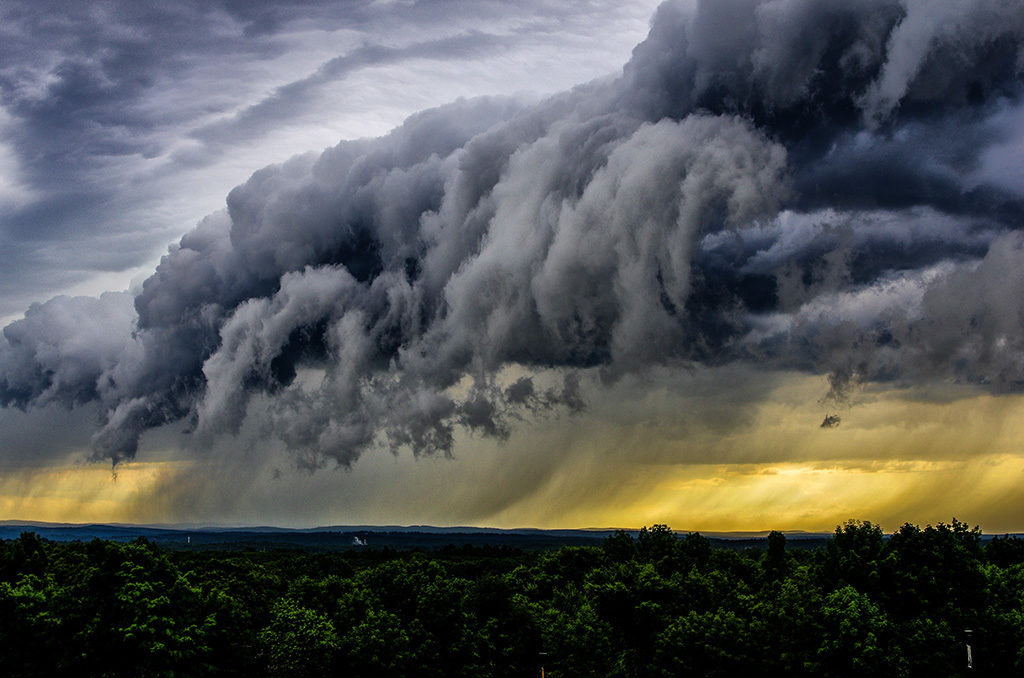
You certainly don't want to think about the possibility of a 90° home or office interior, but it just might happen. It is, therefore, a good idea to learn about why your air conditioning unit might fail. Here are some of the most common reasons an HVAC unit experiences problems during the late spring and summer seasons.
1) Motor Capacitors Become Inoperative
As you run your air conditioner more and more, overheating of the unit often causes the capacitors to become fatigued. If they blow out, the motors that run the compressor and fans will not operate. The system won't even circulate the room air, meaning that your home's or office's interior will heat up very quickly. A large air conditioning unit that provides a high number BTU's cooling power can cause an electrical overload, and instead of the breaker panel tripping, the capacitors on the system's motors will blow.
2) Refrigerant Leak
As you operate your air conditioner more and more frequently, the cooling refrigerant begins to circulate under more pressure. Coolant is sent to the outdoor compressor and then rerouted back to the central unit. If a leak develops, the refrigerant loss can become an indoor or outdoor environmental hazard. At the same time, you will notice that the air coming from the register ducts is no longer cool. The only way to fix this problem is to have a professional HVAC system tech fix the leak and replace the refrigerant.
3) Coils Become Frozen
This is one of the most common air conditioning system problems. As the unit runs, dirty filters or blocked ducts can cause a cooling of the evaporator coils. Sludgy refrigerant is the result, and the coils will become covered with a thick layer of ice or frost. The coils will no longer conduct heat away from the air flow, and the result is warm air blowing from the registers. If the refrigerant lines become blocked, they must be cleaned out by a service technician.
4) Faulty Thermostat Operation
If your thermostat is set to the desired temperature but the system keeps cycling on and off, chances are the thermostat has a faulty part or there is a wiring problem. Repeated cycling can cause a series of problems within the evaporator coils as well as to the motors and fans. Replacement of the thermostat may be necessary.
Most air conditioning repairs become more and more expensive if the problem is allowed to continue. The sooner the unit is repaired, the lest costly the repair bill. If you suspect something is wrong with your air conditioning system, have it checked out by a professional repair specialist such as Mahle Cool Air in Venice FL. Call or Text us today for more details (941) 203-7955 and don't forget to check out our specials, financing, and rent-to-own air conditioning options.
Common Ways Air Conditioners Breakdown Leaving You Feeling The Heat
Know the Signs of Problems with Central Air Conditioners
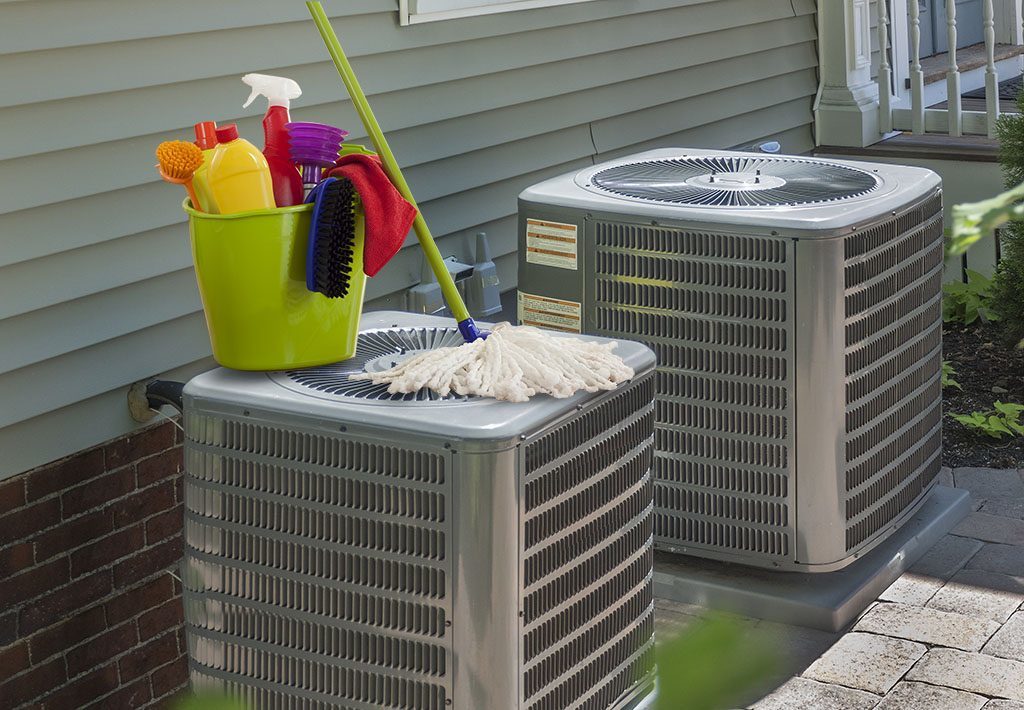
With hot summer weather arriving soon in the Venice area, there are good reasons to have your home’s air-conditioning system serviced to prevent breakdowns that require emergency repairs. There are several common ways a central air conditioner can stop operating completely or cooling a building efficiently. It is a good idea for homeowners or renters to understand the signs of an imminent central air conditioner breakdown in order to tell a professional technician what is wrong with the system when requesting service. For most repairs, an expert air-conditioning technician is required to avoid electrical shocks and injuries from the air conditioner’s components or prevent additional damage to the system.
Moisture under the Central Air Conditioner’s System
It is vital to check under your air conditioner’s system inside a home to determine if there are leaks. A dripping air conditioner may have a disconnected or clogged drain line that leads to an overflowing drain pan. The drain pan will drip moisture on surfaces below, leading to structural damage, odors or mold growth. This problem is simple to repair by reattaching the drain line or removing debris such as sediment from the air conditioner’s drain line. However, there are more serious reasons concerning finding water puddles underneath an air-conditioning unit that requires the expertise of a knowledgeable mechanic. When the refrigerant is low in the air-conditioning unit, the compressor may freeze before turning off for a short amount of time. The ice on the unit melts, leading to puddles beneath the unit that recur as the system freezes and thaws repetitively.
An Air Conditioner that is Making Strange Noises
Air conditioners will make a certain amount of noise, especially when turning on and off, but you should listen carefully for strange sounds as the unit is operating. Grinding or clanging noises indicate that a mechanism is worn or loose, requiring a repair immediately to prevent a breakdown in the middle of the night or on a weekend. Failure to get a loose part tightened or a worn part replaced can lead to it dislodging completing, breaking other components. A poorly lubricated component can also begin to get hot, leading to smoke and a fire that can damage a home. Problems with a fan in the exterior portion of a central air-conditioning unit can also lead to a compressor failure despite tightening the fan or lubricating moving parts.
The Air-Conditioning System is Taking Longer to Cool a Home or Room
If you begin to notice that an air conditioner is taking longer to cool a room or home, then it is time to inspect the device for debris such as dust inside the unit or blockages outside the unit. Begin by turning off the unit to clean the coils and change the air filter before making sure vents are open and free of dust. When this does not solve the cooling problem, this means that the air-conditioning system is either leaking refrigerant or undercharged. The best way to have this problem repaired correctly is by contacting a professional technician who has an understanding of various models and brands of air conditioners to find where a leak is located. Simply adding more refrigerant to the central air conditioner will not repair the problem. While making this air conditioner repair, the technician can also inspect the compressor and other components to verify the mechanisms are working optimally.
An Increase in an Air Conditioner’s Utility Bills
Unless there are unusually hot or humid temperatures in a geographic zone, your utility costs should remain nearly the same as a previous year’s bills. A huge increase in electrical usage is often caused by wiring defects, nonfunctioning capacitors or poor airflow in a building’s ductwork. In addition to having a problem with the actual air-conditioning unit, a home might have a major electrical problem such as a defective voltage meter. An old air conditioner made before new energy efficiency regulations may require a replacement with a new model that uses less electrical power. A knowledgeable technician can assist you in selecting a new air conditioner for a home, before installing the device.
Defective Central Air-Conditioning Sensors, Relay Switches, and Thermostats
Additional reasons for a central air conditioner not cooling a home or operating at all are defective thermostats, relay switches, and sensors. Finding the problems with these mechanisms is difficult, requiring the correct schematics and diagnostic equipment. Fortunately, an expert air conditioner repair technician has the tools and schematics needed to determine the parts that are defective. After troubleshooting the air-conditioning unit completely, a technician can replace, adjust or repair small defective mechanisms to make sure the system is working correctly to keep a home or room cool.
If your air conditioner is on the fritz, contact the AC Repair pros at Mahle Cool Air. Our certified technicians can be there and have your central air conditioner back up and running in no time. Call or Text us today for more details (941) 203-7955 and don't forget to check out our specials, financing, and rent-to-own options. Stay Cool with Mahle!
How To Select The Right Central Air Conditioner System For Your Home
A central air conditioning system provides cooled or warmed air throughout the home, delivered from a single location. Unlike a portable unit that sits in a window frame, a central air conditioning unit is connected to a series of ducts that carry air beneath the floor or above the ceiling to outlet registers in every room.

Choosing the right system for the home involves several considerations. These include the volume of the home's interior, the average temperature on any given day in the region where the home is located, the energy efficiency rating of the unit, and the overall cost involved to purchase and install the system components.
Components Of A Central Air Conditioning System
A central air system consists of a condenser unit, an evaporator coil, blower, ducts, and coolant lines. The condenser unit is placed outdoors and is responsible for drawing heat from the coolant liquid. The evaporator coil and blower fan draws the air into the system, and the air is cooled as it passes over the coils. A secondary blower may also be needed if the air volume is high. This fan blows cold air through the ducts and to every room in the home.
During this process, the coolant liquid is heated because it absorbs energy from the air in and around the evaporator coils. Depending on the coolant used, the result may be a transition from a liquid to a gas state. This coolant gas is pushed outside through the outlet lines, where it is compressed and passed through another set of coils. The heat is drawn away and the coolant is returned to the indoor evaporator coils to begin the cycle once again.
Choosing The Right Size Air Conditioner
Manufacturers grade their products by their ability to produce a specific amount of cooled air. This is measured in British Thermal Units or BTUs. A total of 12,000 BTUs per hour can melt one ton of ice. As a rule of thumb, this is the amount of cooling energy needed to cool and maintain an ideal temperature for every 400 square feet of living space. If the home contains 2,400 square feet of living area, then a total of six tons would be the recommended size and output capacity of the cooling system.
However, it is advisable to have an experienced heating and air conditioning specialist give the home a thorough inspection prior to choosing a model based on cooling power. Some newer homes have more energy-efficient windows, better insulation, and exterior wall materials designed to keep heat in and cold out. This can significantly affect the size of the unit needed.
The Seasonal Energy Efficiency Rating
Abbreviated as SEER, this rating is found on the label of every air conditioning unit sold. The rating system is designed to give an accurate estimate of the total amount of electrical, oil, or gas energy needed to run the system. Most units manufactured today have a SEER rating of at least 13. The higher the rating, the more energy-efficient the system. This is a very important consideration because any type of central air conditioning unit costs a significant amount of energy to operate, especially during the hot summer months.
Types Of Coolant
In the 1980s, CFCs were being phased out as a cooling refrigerant liquid because of their effect on the earth's ozone layer. Freon become the favored coolant, but in 2010 the federal government made an amendment to the Clean Air Act that required new models to become even more environmentally friendly. Today, the most favorable coolant leaving the smallest environmental footprint is R-410A, similar to Freon but manufactured in a way that does not introduce dangerous toxins into the atmosphere as it is being produced. Most new units are built to handle this coolant, and as more units are sold that rely on R-410A, its cost will continue to decline.
Specific Energy Saving Features
Homeowners considering the purchase of an all-in-one heating and air conditioning system are encouraged to look for models that have advanced energy efficiency construction. Specifically, items to look for include an automatic delay fan switch, a variable-speed blower, a high-temperature operation rating of at least 11.6, and oversized evaporator coils.
An automatic delay fan switch allows the fans to operate for several minutes after the coolant flow is interrupted by the home's thermostat. This allows residual cool air to recirculate, saving the owner money. A variable-speed blower reduces the amount of energy needed to operate the blower motor.
A high temperature rated unit has a special expansion valve that allows the unit to operate more efficiently when the outdoor temperature rises above 90 degrees Fahrenheit. Oversized evaporator coils mean a larger volume of air passes over the surface of the coils using the same amount of energy by the fan and blower motors.
Advanced Technology Thermostats
The home's thermostat settings control how much energy will be used to operate the system. Some of the modern thermostat models are completely programmable. They can be preset to change the base temperature level at various times of the day. For example, the home's interior air temperature may be affected less during the late night hours, so the system can be set to run alternately on cool mode or just fan mode. These programmable thermostats can also be set to change the temperature swing at the desired time of day. The narrower the temperature swing - a 2-degree or less swing is desirable - the more efficient the central air conditioning system operates.
The easiest way to get the best air conditioner for your home, however, is to call Mahle Cool Air. Our Technicians are fully NATE certified and will select the best AC or heat pump for your home, not just for technical reasons but also to fit your budget. Call or Text us today for more details (941) 203-7955 and don't forget to check out our specials, financing, and rent-to-own air conditioning options.
Stay Cool Daily With Mahle.
Health Effects of Poor Indoor Air Quality
Indoor air quality is a concern shared by many individuals, and there is a good reason for this. The quality and cleanliness of air inside a home or workplace can be impacted by many things, and effectively, some of the pollutants inside buildings today may cause health issues that range from basic allergic responses to serious or life-threatening conditions such as cancer. Understanding more about what the pollutants found inside buildings are and what you can do to improve indoor air quality is important if you want to protect your health and the health of those who spend time inside your home or business building.
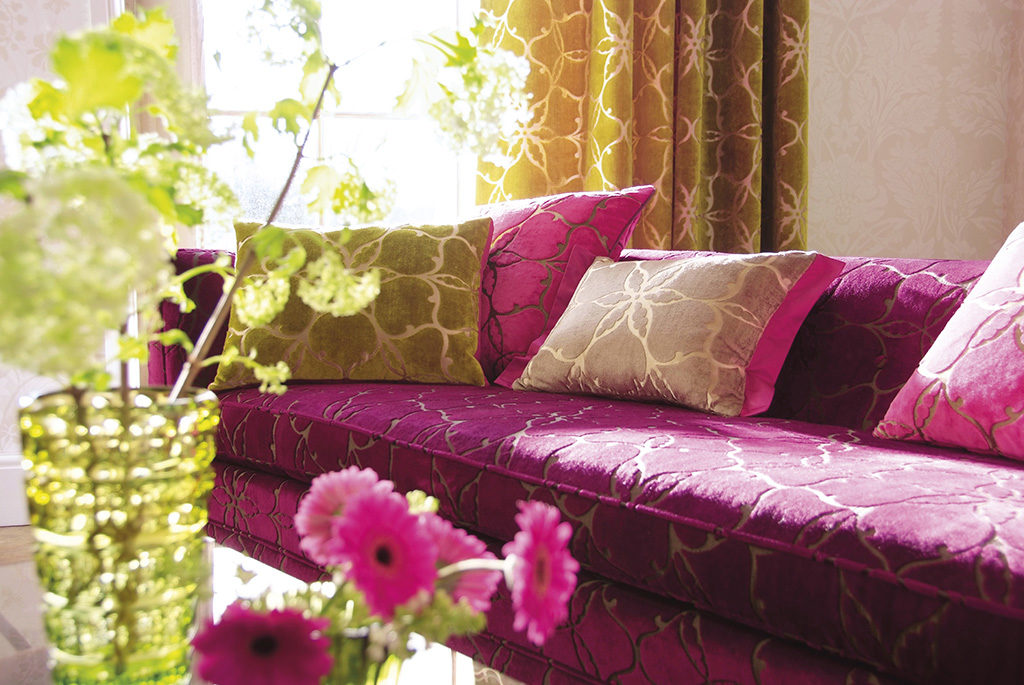
Common Pollutants Found Inside Buildings
When you think about indoor air pollutants, you may think about things like animal dander, dust and perhaps mold spores. These are commonly associated with dirty air ducts, and you may believe that you can remove the pollutants by simply replacing your air filters in your HVAC system and keeping your air ducts clean. However, there are other common pollutants found in modern homes and commercial buildings today. For example, tobacco smoke, chemicals from furnishings and cabinetry, chemicals from carpeting and flooring, radon, combustion gases from cooking and pesticides are just a few of the many types of pollutants that you and your loved ones may be exposed to on a regular basis inside your home. These can cause immediate health issues, and some can cause serious and even fatal health issues.
Why This is a Growing Problem
In previous decades and centuries, buildings were not designed with peak energy efficiency in mind. While they offered protection from the elements, many were drafty and allowed more air to circulate between the indoor and outdoor environment. Today's modern structures are well-sealed, and this means that more of the pollutants that are found or even created inside a building remain in this area. In some cases, it is estimated that indoor air quality may be considerably more polluted than outdoor air. Opening windows from time to time to allow fresh air into the structure is a great idea, but this alone is not the only step that you need to take to create a healthier indoor environment in your building.
Purifying Your Indoor Air
The United States Environmental Protection Agency, or EPA, has released a statement that indicates that eliminated chemical emissions inside a home or building are the best way to effectively improve indoor air quality. Laws at the local, state and federal level generally do not regulate emissions from products, but many environmental agencies and public health organizations have released information and recommendations regarding minimal exposure levels for various products that create pollutants. You may consider becoming more aware of how your flooring, clothing, furniture, cleaning products, paint and even the materials used to construct the building can impact air quality in the building. Knowledge is essential in combating air pollution. Bryant air purification equipment may be used to reduce the pollutants that you cannot eliminate through improved product choices.
Why Air Purification Equipment Can Be Beneficial
Volatile Organic Compounds, which are also known as VOCs, are one of the most common types of air pollutants to cause immediate health symptoms in people of all ages. There are various types of VOCs, and the individual's length of time exposed to the pollutant, individual health status and overall type of exposure may impact the severity and type of symptoms. In addition, conditions inside the structure, such as temperature, humidity, type of ventilation system and the overall age of the building can also play a role in the type and severity of symptoms. Some of the more immediate health symptoms that individuals exposed to VOCs may experience include:
- Headaches, dizziness or general confusion
- Irritation in the throat, nose, and eyes
- Rashes or other allergic skin responses
- Respiratory difficulties
- Stomach upset, including vomiting or nausea
- Fatigue
- Coordination issues
- Nosebleeds
When exposed to VOCs over a longer period of time or on a regular basis, additional health issues may be a concern. Some of the long-term or chronic health concerns associated with exposure to VOCs include
- Heart, kidney or liver damage
- Central nervous system issues
- Various types of cancer
In addition to these concerns, those who are exposed to VOCs as well as mold spores through indoor air pollution may also be at an increased risk for developing respiratory diseases or for existing respiratory conditions worsening. Some of these issues may be permanent and may continue to plague the individual even when the pollutants are removed from the environment. Some of these include:
- Asthma
- Hay fever or allergies
- Hypersensitivity pneumonitis
Health Concerns Resulting From Exposure to Mold
Mold spores are commonly found in residential and commercial structures as well, and exposure to mold may have acute or immediate health responses. Some issues may persist with a long-term impact on health. Mold exposure may result in:
- Headaches
- Concentration and memory issues
- Throat, nose and eye irritation
The mold exposure symptoms are often referred to as sick building syndrome. The acute symptoms may improve when the individual is removed from the environment or when indoor air quality improves. However, exposure to mold may cause flare-ups with existing chronic conditions, including allergies, asthma and more.
It is important to learn more about your property's indoor air quality and to take steps to purify and clean the air as needed. Call or Text us today for more details (941) 203-7955 and don't forget to check out our specials, financing, and rent-to-own options.
Puron Refrigerant A Far Superior Collant Quickly Replacing R-22 In Air Conditioners and Refrigerators
Freon, often known by the name R-22 or Freon 22, was deemed to be a hazardous refrigerant by the Clean Air Act of 1990. Freon is a hydrochlorofluorocarbon (HCFC), a harmful man-made substance that has been shown to damage the ozone layer and threaten human health.
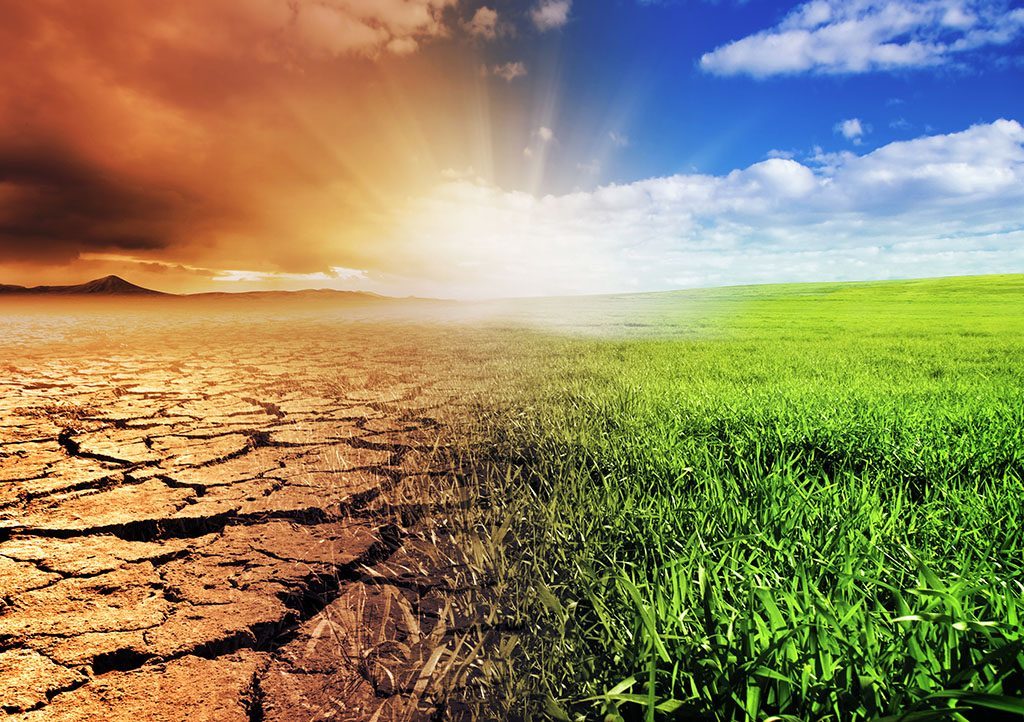
When Freon enters the atmosphere, chemical reactions occur with the sun's UV radiation. The resulting breakdown releases separate chemicals, most notably chlorine, that then react with and degrade ozone. As ozone disappears, an increasingly large amount of UV radiation is able to penetrate the atmosphere, contributing to major issues like global warming and skin cancer.
The refrigerant is also unsafe for humans and animals, although accidental exposure is rare. Freon is heavier than air, so it can displace oxygen in the lungs and stay there, causing asphyxiation and death. Furthermore, like all HCFCs, Freon is toxic. Effects of exposure can include cardiac arrhythmias, dizziness, loss of consciousness and central nervous system suppression at concentrations of only 11 percent. This presents an especially worrying problem due to Freon's chemical nature. As a colorless and odorless gas, it cannot be detected by sight or smell if it is leaking from an appliance.
Due to these factors, the use of Freon as a refrigerant is being gradually eliminated. Instead, authorities and industry leaders are now suggesting that homeowners switch to the new Puron refrigerant for their cooling needs.
Puron also goes by the name of R-410a. It has won approval from the Environmental Protection Agency (EPA) as an ideal replacement for Freon 22 and is the first refrigerant on the market to address ozone depletion.
Phasing Out Freon 22
Freon is still found today in the vast majority of American homes. Nonetheless, under the Montreal Protocol, steps have put in place to gradually ease the country out of its dependence on Freon and ultimately abolish its production and use.
Between 1996 and 2004, the production of Freon 22 fell by 35 percent. In 2010, Freon production was further cut by between 65 and 75 percent, which, with unanimous support, was sped up by ten percent at the Montreal Protocol Agreement's 20th anniversary in 2007. Moreover, the United States government is now requiring producers of Freon to sell exclusively equipment that does not contain R-22. This has caused much industry upheaval as companies rush to change their practices in order to comply with the law.
By 2015, experts want to see Freon production fall by 90 percent. Their hope is that, by the year 2020, Freon use will be phased out almost completely. Naturally, as R-22 is becoming more scarce, the costs per-pound of the gas are expected to rise sharply because of supply and demand.
This isn't the first time this has happened. Worried about its effects on the environment, the government worked to phase out another ozone-depleting automotive refrigerant, R-12, in the late 1980s. Anyone who possessed a car during this period may recall just how quickly the prices of R-12 spiked, or the financial impact of making upgrades to accommodate the new option. Indeed, between 1990 and 1997, the prices of R-12 refrigerant jumped by a staggering 650 percent.
What It Means For You
You can generally expect to get about 12 years of use out of an air conditioner in Florida, which means:
If you buy an air conditioner today, by the time it's reached the end of its life, Freon manufacture will have been halted, rendering it obsolete.
Freon will continue to be available until 2020, but it's likely to become prohibitively expensive.
Who Manufactures Puron Refrigerant?
So far, there has been only one company that has been an industry leader in manufacturing appliances that utilize Puron, and that is Carrier. Carrier has been offering products that use Puron for almost 18 years, and they've been installed in homes across the country. Appliances that use Puron have been shown to be among the most durable ones available, and they've even gained a national reputation for their dependability.
So far, Puron is used as a refrigerant in over 20,000 active AHRI-rated appliances. You can count on Carrier to offer the quality products you require to help you achieve cutting-edge standards. If it's time to retire your old Freon-containing air conditioner, consider switching to a Puron air conditioner. It's safer for you and the environment, easier on your wallet and will become increasingly relevant technology in the coming years.
Give Mahle Cool Air a call today to find out more about our Puron systems. Call or Text us today for more details (941) 203-7955 and don't forget to check out our specials, financing, and rent-to-own options.
Is Indoor Air Quality Important?

Most people know about the dangers of outdoor pollution. However, the dangers of indoor air pollution are often underestimated. Indoor air is two to five times more polluted than the outside air. In many cases, the air inside is more than 100 times more polluted than the air outside.
Poor indoor quality has been linked to many health problems, such as asthma and allergies. The number of children and adults being diagnosed with these conditions is on the rise. According to the American Lung Association, asthma is the sixth most common chronic health condition. Nearly 40 million people in America suffer from allergies. Improving indoor air quality is one of the things that can be done to manage allergy symptoms.
Allergies and asthma are not the only health problems that have been linked to poor indoor air quality. The American Heart Association has stated poor indoor air quality can increase the risk of heart problems. Poor indoor air quality can also increase the risk of lung cancer. People who already have asthma or another respiratory condition are at an increased risk of suffering complications from poor indoor air quality.
The average person spends 90 percent of their time indoors. The Environmental Protection Agency, or EPA, has stated that indoor air pollution is one of the top environmental concerns. The average person also inhales at least 15,000 quarts of air every day. The fact that people spend so much time inside and could be exposing themselves to indoor air pollution should be a concern.
The Environmental Protection Agency has conducted studies that have shown indoor air pollution is a common problem in both rural and urban areas. There are many things that can contribute to poor indoor air quality. Many of the cleaning products that people use daily have chemicals that reduce indoor air quality. Even though most people believe their home is the safest place, it is also the place where they get most of their chemical exposure.
Secondhand smoke is another thing that can have a negative effect on indoor air quality. It is estimated that cigarette smoke has over 200 chemicals, including carbon monoxide and formaldehyde. Sixty of these chemicals are known to cause cancer as well as other illnesses.
Mold, dust mites and pet dander can also reduce indoor air quality. Gas, oil, radon, insulation, and pesticides are some of the other things that contribute to poor indoor air quality. Additionally, a poorly-ventilated home can have a negative effect on indoor air quality. Pollutants can enter one's home through the cracks in the foundation.
There are many benefits that can be reaped from good indoor air quality. You will have an easier time breathing if the indoor air quality is good. Poor air quality can cause you to breathe shallowly, which can put a strain on the heart and lungs.
Your sleep quality and quantity will improve if the air quality inside your home is good. Poor indoor air quality can cause respiratory irritation, which will make it much harder for you to get a good night's rest. It can also worsen sleep apnea.
If your HVAC system is not working properly, then this can have a negative effect on indoor air quality. That is why it is important to make sure that your heating, ventilation and cooling system receives regular maintenance. Regular HVAC maintenance not only improves the air quality inside your home, but it can also help conserve energy and cut the cost of electricity.
Our HVAC company provides high-quality AC service. This family owned-company is Bryant Factory Authorized and Nate Certified. This holiday season is an important time to consider calling a Mahle technician for options that will improve the quality of air in your home. Call or Text us today for more details (941) 203-7955 and don't forget to check out our specials, financing, and rent-to-own options.
Do air purifiers really work?

A common question that homeowners in Venice and surrounding areas have is if air purifiers actually work. Some HVAC companies offer air purifier installation and maintenance service and homeowners who are concerned about the state of their home's indoor air quality may be ready to install a new air purifier in their home. With a closer look at what these models can do for your home, you may be able to make a thoughtful and informed decision that is in your best interests.
What Does an Air Purifier Do?
There are several different models of air purifiers that are available on the market today, and there are several different ways that these systems work. A common method found in many systems is for air to circulate through the system. As it passes over the system, the dust, mold spores, and other debris in the air is extracted by an electrostatic charge created by plates inside the system. In this manner, the air that passes through the system is actually cleaner than the air that is going into it. Other models work in a similar way, and most air purifiers are effective at removing particulates from the air as they state they do.
Why They Are Not Completely Helpful?
While air purifiers are effective at removing many particulates from the air, the fact is that they may not remove all of the particulates that most commonly impact the health of you and your loved ones. For example, some particulates that cause allergies actually do not float in the air, and this is due to the weight of those molecules. Many people are allergic to numerous triggers rather than just a few, and many of these triggers are found on the floors, furnishings and other items inside the home. Because of this, these particulates will rarely ever reach the air purifier. More than that, air purifiers typically must be cleaned out, and particulates that were captured by the air purifier may be freed back into the air during the cleaning process.
How Air Purifiers May Harm You?
As you can see, air purifiers are effective at cleaning the air, but they are not fully effective at cleaning your indoor environment in a manner that most believe that they do. More than that, the electrostatic charge in many air purifiers actually can create ozone. Ozone is a type of heavy oxygen that can be unhealthy to you and your family members when it remains inside a confined area like a home. In fact, the moderate health benefits provided by air purifiers through the removal of some particulates from the environment is often counteracted by the unhealthy impact that air purifiers create through the introduction of additional ozone in the home.
How an HVAC Company Can Help You?
If you are disheartened by the news you have received about the benefits of an air purifier, take heart that there are other options available. For example, introducing a HEPA air filtration system into the home can be effective. An HVAC service technician can inspect your HVAC system and your home, and he can inform you about the best course of action to take to improve your home's indoor air. If an air purifier would benefit your home, the HVAC company can recommend the right model for your home and can provide you with installation service.
Indoor air quality is a concern shared by many in the local area, and there is a good reason for this. The air quality in some homes may actually be dirtier and more polluted than the air outside the home in some cases, and this can impact the health of you and your family. While air purifiers are one way to clean the air, there are other options that may be more affordable and more effective. Through a meeting with an HVAC technician, you can learn more about the superior options for improving the air that you breathe while at home.
If you are trying to save money this holiday season, then you should consider calling a Mahle HVAC technician for options that will improve your air quality. Call or Text us today for more details (941) 203-7955 and don't forget to check out our specials, financing, and rent-to-own options.


